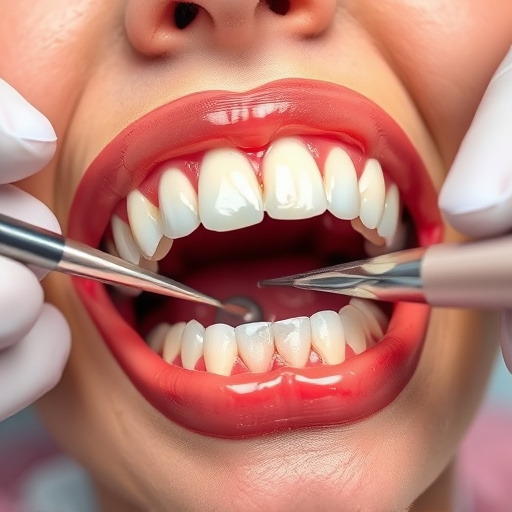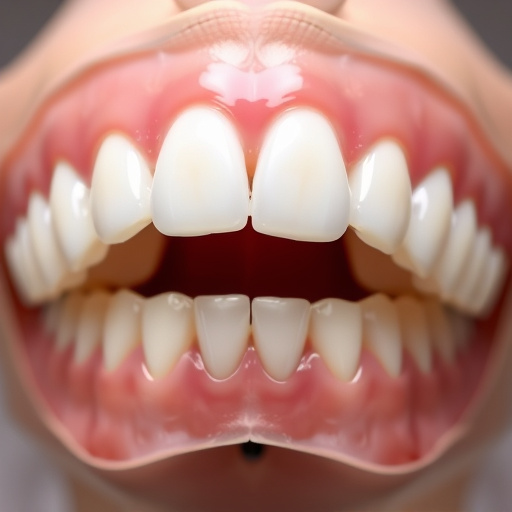Special needs dentistry caters to individuals with disabilities, addressing their unique oral health challenges. It provides tailored care in safe, inclusive environments, employing adaptive techniques and specialized equipment. Personalized treatment plans, combined with staff training, enhance patient experiences, fostering long-term oral health management for special needs patients.
Building trust with patients requires a deep understanding of their unique challenges. This is especially true in the niche field of special needs dentistry, where dentists cater to individuals with various physical, cognitive, or emotional disabilities. This article explores three key pillars: understanding the specialized nature of special needs dentistry as a growing field, creating safe and welcoming environments, and delivering personalized care tailored to individual needs.
- Understanding Special Needs Dentistry: A Niche Field Emerges
- Creating Safe Spaces: Environment and Staff Training
- Personalized Care: Tailoring Treatments for Unique Needs
Understanding Special Needs Dentistry: A Niche Field Emerges

Special needs dentistry is a specialized field that has emerged to address the unique oral health requirements of individuals with disabilities. This niche area recognizes that managing dental care for those with special needs, such as physical, developmental, or cognitive impairments, demands tailored approaches and considerations. Traditional dental practices often struggle to accommodate these individuals due to their specific challenges, which can include limited manual dexterity, communication difficulties, or behavioral issues.
The demand for specialized dental services has grown alongside increased awareness of the importance of oral health for people with special needs. This field offers comprehensive dental care tailored to their unique circumstances, including routine oral exams and emergency dental care. By providing a supportive environment and utilizing adaptive techniques, special needs dentistry ensures these individuals receive the necessary treatment while promoting overall well-being.
Creating Safe Spaces: Environment and Staff Training

Creating safe spaces is a cornerstone in building trust within any healthcare setting, and special needs dentistry is no exception. These environments must be tailored to accommodate diverse patient needs, ensuring comfort and security for all individuals. From sensory-friendly examination rooms to specialized equipment designed for various disabilities, these adaptations foster an inclusive atmosphere. The physical space isn’t the only aspect; staff training is paramount. Educating dental professionals about different special needs, communication techniques, and behavior management strategies enables them to deliver personalized care.
By implementing such measures, children’s dentistry practices can make a significant impact on patient experiences, especially for those requiring tooth repair or considering procedures like dental implants. Trained staff can anticipate and address specific concerns, making the often-intimidating dental visit more manageable and less stressful. This approach not only builds trust but also sets the stage for long-term oral health management in a supportive environment.
Personalized Care: Tailoring Treatments for Unique Needs

In the realm of special needs dentistry, personalized care is paramount to building trust with patients and their families. Every individual has unique requirements when it comes to dental health, and treatments must be tailored accordingly. For instance, a patient with autism might require a calmer, more structured environment during procedures, while another patient with a physical disability may need specialized equipment to access their mouth comfortably. Dentists specializing in this field are trained to adapt their approach, ensuring that every patient receives the most suitable and gentle care possible.
This level of customization extends beyond adapting the dental chair or treating specific conditions. It involves creating personalized treatment plans, including recommendations for general dentistry procedures like cleanings and check-ups, as well as advanced solutions such as clear aligners for straightening teeth or dental crowns for restoring damaged teeth. By considering each patient’s unique needs, these specialized dentists foster a sense of trust and comfort that is crucial in ensuring regular dental care for special needs individuals.
Special needs dentistry, as a specialized field, has emerged to address the unique oral health care requirements of individuals with diverse conditions. By creating safe spaces through tailored environments and comprehensive staff training, this niche practice ensures personalized care for each patient. This approach fosters trust, enhances accessibility, and ultimately improves overall oral health outcomes for those with special needs. Embracing these principles is pivotal in making quality dental care more inclusive and effective.














